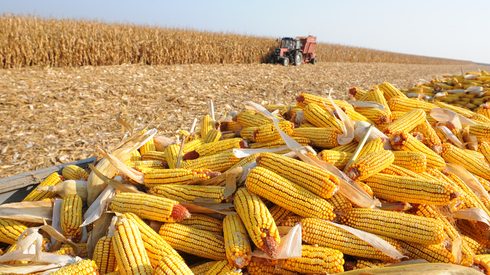The European Commission has lowered its forecast for EU soft wheat, barley, and corn production in its latest monthly update for the 2023-24 crop against the backdrop of contrasting weather conditions across large parts of the continent.
The EU’s executive body cut soft wheat production in the June forecast by 2.681 million tonnes from its May forecast to 129.879 million tonnes, due largely to reduced yields in Poland.
The new forecast is 2% below last year’s figure but 4% above the 5-year average.
The main decreases were attributed to Lithuania, where the forecast was down 705,000 tonnes, Poland (down 492,000 tonnes), Latvia (down 416,000 tonnes), Bulgaria (down 314,000 tonnes), and Romania (down 284,000 tonnes).
Austria, Denmark, Estonia, the Czech Republic and Spain accounted for a total reduction of 511,000 tonnes, split roughly equally between the five.
Grain production
Projected EU corn production in 2022-23 was reduced by 437,000 tonnes to 63.95 million tonnes, on par with last year’s figure, and 7% below the 5-year average.
The main local decreases were in Romania (down 691,000 tonnes), Italy (down 304,000 tonnes), Bulgaria (down 256,000 tonnes), France (down 160,000 tonnes), and Germany (down 130,000 tonnes).
Negative impacts on the yield potential of summer crops have been most pronounced in regions that were already affected by the long-lasting rain deficit, such as the Baltic states, Poland, and much of Germany, which – along with delayed sowing in May – has caused concern.
On the other hand, a distinct rainfall surplus in parts of Italy, Hungary, Croatia and Slovenia, resulted in waterlogged conditions, flooded areas and increased pest pressure, with total losses in flooded areas on winter crops.
The forecast for barley also was lowered by 2.385 million tonnes amounting to 50.088 million tonnes with an average yield 4.8 tonnes per hectare.
Finally, durum wheat production in the EU was expected to fall by 194,000 tonnes to 7.24 million tonnes compared to the May outlook, which was 2.6% less than last year’s 7.468 million tonnes.
The loss was mainly due to a fall in Italy’s production, which was pegged 134,000 tonnes lower at a 1.883 million tonnes gross harvest, alongside a decrease in French production, which was down 47,000 tonnes at 1.3 million tonnes.
Oilseeds production
The Commission also lowered its forecast for the 2023-24 rapeseed crop while marginally increasing figures for sunflower seeds in its June update.
Rapeseed production is now expected to land at 19.91 million tonnes, down 305,000 tonnes from the May forecast, down 2% from 19.5 million tonnes last year but 15.2% higher than the five-year average.
The Commission raised its EU sunflower seed production estimates by 225,000 tonnes to 10.8 million tonnes.
This is still considerably higher than the 9 million tonnes seen last year and some 17.1% higher than the five-year average.
Finally, the Commission lowered its forecast for soybean production to 2.88 million tonnes from 2.82 million in May, but this is still above last year’s 2.44 million and 8% higher than the five-year average.





